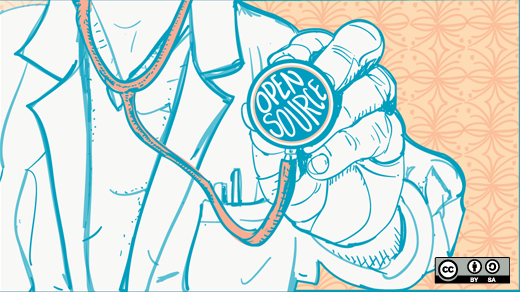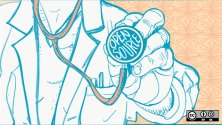Are you an academic, scientist, health policy junkie... or just a person who goes to see your doctor every now and then? Well, listen up: a new project by Fred Trotter and Not Only Development was recently granted protection under the Freedom of Information Act and met it's crowdfunding effort on MedStartr to move ahead with plans to generate an open data set that promises to alter the healthcare landscape and have drastic implications on how we navigate it.
The Doctor Social Graph, or DocGraph, eventualy released under Creative Commons, includes data on how every doctor teams together to deliver healthcare (including simple referrals). These relationships and referral patterns are used to do page rank-style algorithums to use the way doctors work together as a recommendation system. Because what we use now, sites like RateMDs or Healthgrades, is uncomfortably subjective. They have the same problem as Yelp: when someone orders something they don't like (simply based on preference, not service or cleanliness), they are likely to rate the restaurant lower as a whole. Though you may get a more accurate view over time, with more and more people taking the time to input their rating, we just don't have that kind of time or threshold for guesswork when it comes to our health. And so, with doctor rating sites, if a patient gets bad news, that they have an illness or need surgery, the tendency is there to rate the doctor the same as their experience—negatively.
Now that the project has reached it's financial goal, the team will begin buying up doctor credentialing data from all 50 states, which they wil then overlay with the referral patterns data from the DocGraph (one of the largest named social graphs available to the public). Doctor credentials include things like where they went to medical school, if they are board certified, and if they've ever been sued for malpractice. The goal is not to make things harder on doctors, but to make transparent the facts for the better use and decision-making of those who require their service and skills.
A multitude of questions will be raised, and now, objectively answered, like: How do medical schools impact how doctors refer each other? How does board certification impact how doctors refer each other? And on and on. Not to mention the big question: How does my doctor rank on the basis of his knowledge, understanding, skill, and expertise?
Trotter explains:
To improve the data set and create a community of open data around it, we will apply both a dual licensing model and a random licensing model so that interested parties can purchase various levels of access. Eventually, the ransom on the license will expire and the data set will be available under an open source license. That open source license will be what is known as "viral", which means that users will be free to merge this data set with their own, as long as they release the resulting merger as open source also. For parties that want to keep their data private and proprietary, there is a more expensive option to get a proprietary friendly license.
The results of this map of healthcare promise to be astounding. And, Trotter goes further to say, "This is by far the most controversial thing I've ever done and that says something because I've done some fairly controversial things. So, people will be fired over what's in this data. People will sue, preferably not me, over what's in this data." But ultimately, these are indicators of improvement and transparency, and there will be many more positive ones to come as well, thanks to the push and promise of open data.






1 Comment